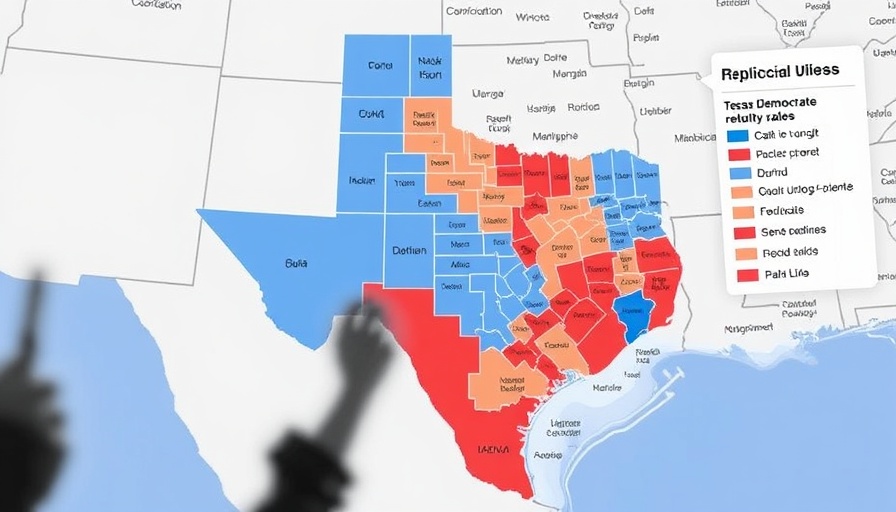
Dallas Welcomes New Leadership in Law Enforcement
In a significant move for public safety in Texas, the city of Dallas has named Daniel Comeaux, the Houston DEA Special Agent in Charge, as its new chief of police. This announcement comes after a thorough seven-month search to find a successor for Eddie Garcia, the previous chief who left to take on a role in Austin. City Manager Kimberly Bizor Tolbert expressed confidence in Comeaux's appointment, emphasizing his extensive experience in addressing complex crime issues across diverse communities.
Comeaux's Vision for a Safer Dallas
Taking charge of the Dallas Police Department, which boasts a hefty budget of $720 million and nearly 3,700 employees, Comeaux aims to implement innovative crime-fighting tactics, enhance recruitment efforts, and build stronger bonds with the community. In his words, "I joined the police force because I witnessed what can happen to neighborhoods that aren’t safe." His commitment to collaborative policing might set a new standard for effective law enforcement in a city grappling with crime.
The Impact of Leadership Changes
Comeaux's arrival comes at a crucial time as Dallas continues its efforts to reduce crime rates. The continuity of leadership is vital in maintaining public trust and effective policing strategies, as highlighted by Tolbert's remarks regarding Comeaux's proven track record. His experience at the federal level may bring fresh perspectives necessary for tackling crime in urban environments.
Community Perspectives on Public Safety
As Dallas residents await Comeaux's official introduction on April 21, there is a palpable sense of hope and anticipation. The communities that often bear the brunt of crime-related challenges are looking for transparent leadership that fosters trust. Many are eager to see how Comeaux's collaborative approach could positively influence public safety and community relations.
Comparative Context: Leadership Across Cities
In recent years, cities across the United States have experienced seismic shifts in police leadership in response to public demand for accountability and safety. For instance, in Fort Worth, the recent appointment of H. Nick Kunkle as police chief reflects a similar movement towards community-oriented policing. Both cities are striving to rebuild trust between law enforcement and residents, and Comeaux’s arrival could inspire collaborative initiatives.
A Vision for Modern Policing
Comeaux's focus on utilizing data-driven strategies and innovative training programs resonate with current trends in law enforcement, where many departments are pivoting towards modern policing techniques. This holistic vision could serve as a model for other cities striving to enhance their safety measures while ensuring community engagement remains paramount.
Looking Ahead: The Future of Dallas Policing
As he steps into his role, Comeaux faces the challenges of adapting to Dallas's unique needs while coordinating efforts to reduce crime further. Public support will be crucial as he works to implement his vision and establish his leadership. Engaging with Dallas's diverse communities and addressing their concerns will likely be key factors in Comeaux's success.
Wrap-Up: Why This Matters
The appointment of Daniel Comeaux as Dallas chief of police offers a fresh start for the Dallas Police Department and its community. As crime rates continue to be a pressing issue in urban spaces across the country, Comeaux's leadership might not only shape the future of public safety in Dallas but also influence policing policies in other American cities.
 Add Row
Add Row  Add
Add 




Write A Comment